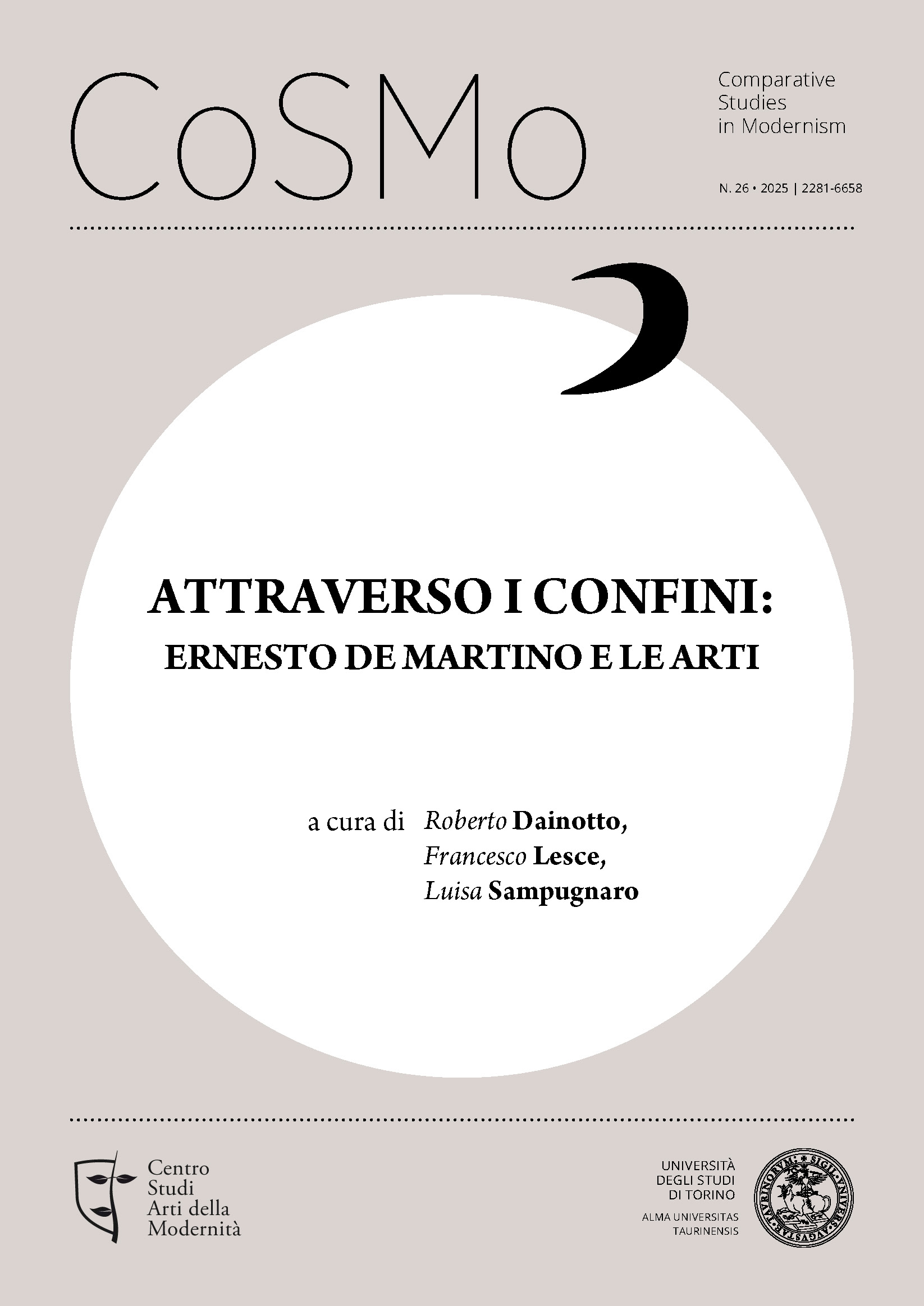The heritage of Vertigo
Ernesto De Martino and Suzanne Doppelt: Anthropology and Poetry around the “taranta”
DOI:
https://doi.org/10.13135/2281-6658/12147Keywords:
Ernesto De Martino, Suzanne Doppelt, Ethnography, Poetry, TarantismAbstract
The metaphoric “bite” of the tarantula is the embodied memory of a wounded heart. A transgenerational legacy of emotional debts in which the fire of the Trouble (“la Noia”), a mixture of languor and spleen, blow. The painful absence embodied by the frantic body of the tarantata/o (women and men who have been “bitten”) deflagrates through the desegregation and reintegration of personal identity through the ritual dance/combat. My contribution proposes a hybrid text between anthropological analysis, poetic prose and poetry, based on the work of the French poet Suzanne Doppelt, Meta donna (P.O.L., 2020), inspired by Gian Franco Mingozzi’s documentary “La taranta” (1962), set against the backdrop of De Martino’s La Terra del rimorso (1961). Doppelt’s work, a poetry in prose, traces the broad lines of Mingozzi’s documentary while reflecting certain elements of the poetess's poetic horizon, such as insects, in particular the araneid, the automaton, metamorphosis, and magic. My contribution draws a parallel between De Martino’s vision of straniamento (estrangement) driven by the tarantate/i, “the malaise of the unmanageable unusual”, characterized by the loss of Presence – a feeling I shall show to be peculiar to De Martino himself – and the struggle to recover it through dance, and Doppelt’s poetic approach, which envisages this same condition as belonging to a fairy-like mechanics intrinsic to the principle of movement itself. The comparative analysis of the two approaches is interspersed with the author's poetic prose, which takes up the concept of apocalypse from various individual and collective landscapes of a contemporary Anthropocene.
Downloads
Downloads
Published
Issue
Section
License
Authors keep the copyrights for their work and give the journal the work’s first publication copyright, which is at the same time licensed under a Creative Commons License – Attribution, which in turn allows other parties to share the work with an acknowledgement of the work's authorship and initial publication in this journal.
Content Licence

You are free to copy, distribute and transmit the work, and to adapt the work. You must attribute the work in the manner specified by the author or licensor (but not in any way that suggests that they endorse you or your use of the work).
Metadata licence

CoSMo published articles metadata are dedicated to the public domain by waiving all publisher's rights to the work worldwide under copyright law, including all related and neighboring rights, to the extent allowed by law.
You can copy, modify, distribute and perform the work, even for commercial purposes, all without asking permission.





